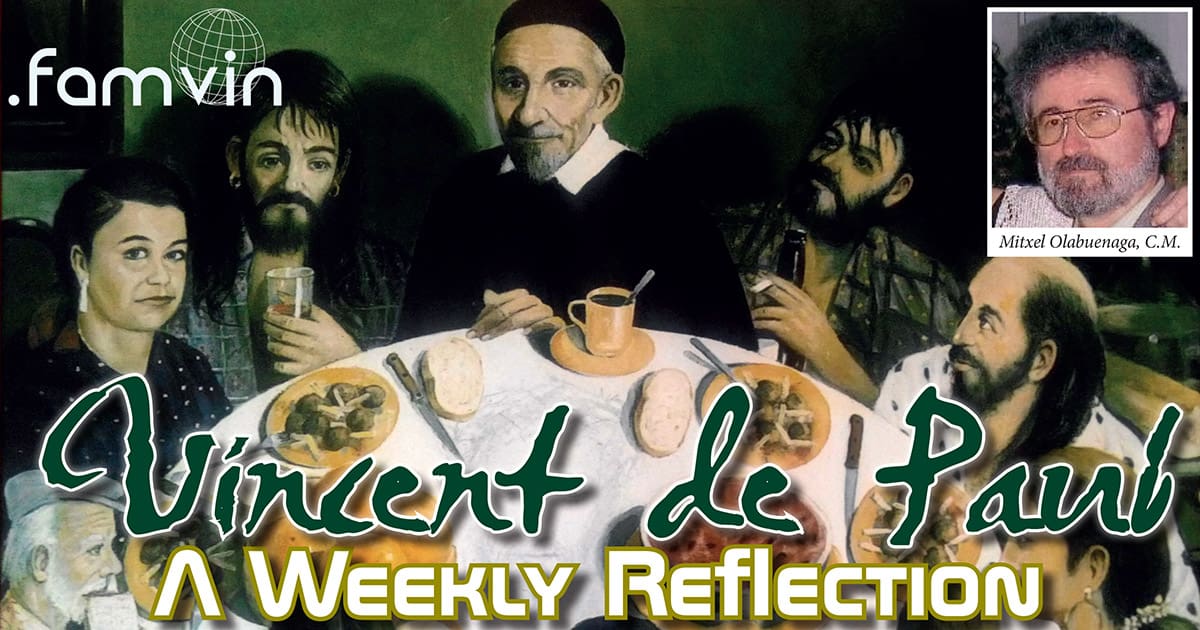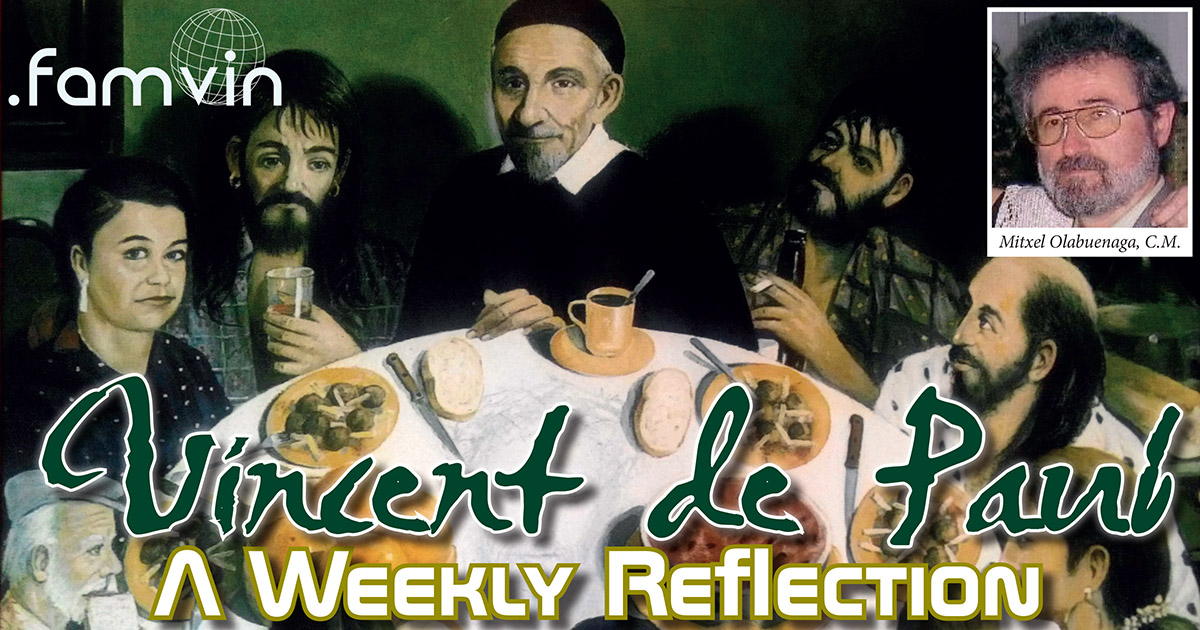Do it for God (Do it for Love) • A Weekly Reflection with Vincent
“One means of doing [your service] as God wills is to do it in charity—in charity, Sisters. How excellent that will make your service! But do you know what it means to do it in charity? It’s to do it in God, for God is charity, and it’s to do it purely for God; it’s to do it in the grace of God, for sin separates us from the charity of God.” (CCD:IX:conference 24).
Vincent de Paul
Reflection:
- That Mr. Vincent was shrewd isn’t my discovery: he was shrewd in looking out for his own benefit (and that of his family) until 1617 and shrewd for the benefit others (until his death). It was a longer process than it appeared at first glance and became evident (but not finished) in Folleville and Chatillon. It was a series of steps that, initiated in Dax (“My will be done”), began to bear fruit in Paris (“Thy will be done”). Several times he said, facing the many obstacles to which his critics exposed him, a phrase that summed up his conversion: “the work will remain if it is the will of God.”
- The simple and careful reading of the literary work of any distinguished person (ecclesial or civil) leads us to discover the framework of his activity, that is, his intellectual universe. This framework is what marks its originality. Possibly this also happens in every culture, in every age … Mr. Vincent ends by clearly pointing out the framework of the God in whom he believes and acts: “God is charity.”
- As in every coherent person, belief does not remain mere speculation enclosed within four walls, but unfolds within society. Here Mr. Vincent shows a new intuition, a new motivation in the task that makes him tremendously contemporary: we must do things “for God.”
- This intuition adds another side to the coin that neither perfects nor improves the first, but simply forms an integral part of it: “doing things for God – doing things out of love.” It is a question of “doing” but, at the same time, “doing from a perspective” that is born of God and, through the poor, brings us back to God. It is the poor who breaks what could be a vicious cycle, because each poor person is different and every age shows us new faces of poverty.
Questions for dialogue:
- Do we have the intuition of Mr. Vincent regarding the dynamic “do for God-do for love”?
- Do our works reflect the face of a charitable God?
- Are we close to the poor and do we let ourselves be influenced by them?
- Have we detected the new faces of poverty?
Mitxel Olabuenaga, C.M.
![]() Mitxel.OlabuenagaOrnes
Mitxel.OlabuenagaOrnes
Tags:








0 Comments